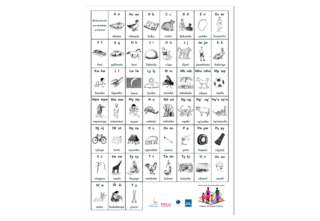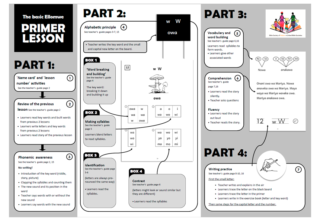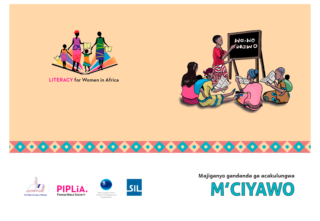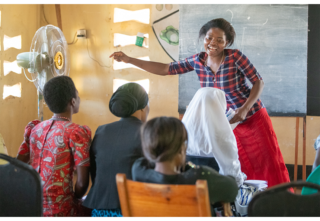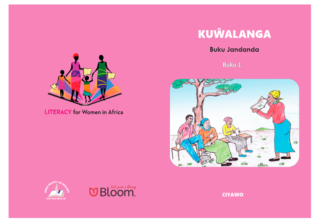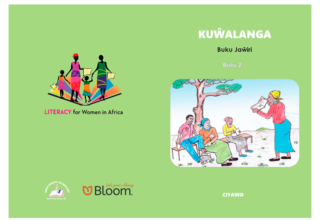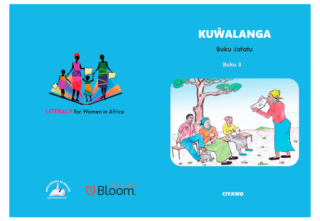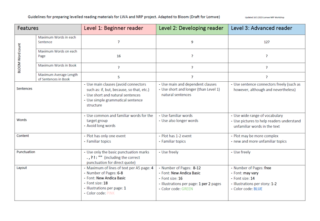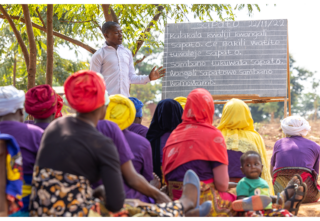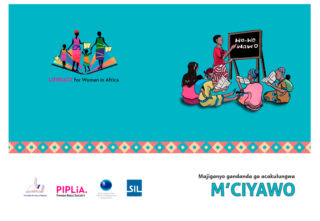
Literacy for Women in Africa (LWA)
Imagine a world where you can’t read a single street sign, price tag, text message, doctor’s prescription, or even your own ID. Not to mention the news or literature that brings joy and information.
Every seventh adult lives in such a world. The possibilities of influencing one’s own life are limited. Literacy is also linked to societal development. The countries with the lowest literacy rates are also among the poorest.
Literacy is not just a skill, it is a human right.
According to UNESCO, there are nearly 800 million non-literate adults in the world. Many non-literate adults are women from non-dominant language communities.
Literacy for Women in Africa (LWA) responds to these challenges by offering literacy in local African languages.
Benefits of literacy
enables democracy
helps out of poverty
prevents from being scammed
creates equality
What is Literacy for Women in Africa (LWA)?
The Literacy for Women in Africa is an education program that responds to the challenges of illiteracy, especially in Southern and Eastern Africa. The Finnish Bible Society (FiBS) initiated the program in 2017 in collaboration with five African Bible Societies and SIL International. The program attempts to empower 20,000 African women by equipping them with basic literacy skills. The program is currently running literacy classes in five independent projects in Angola, Ethiopia, Kenya, Malawi, Namibia, and Tanzania. Six local languages are used as languages of literacy.
Project operations, including staff training and day-to-day activities in literacy classes, are coordinated by the five local Bible Societies. The LWA program has thus far (2023) trained more than 1000 local community members as literacy teachers. Literacy consultants and specialists from SIL International and FiBS have mentored five national literacy coordinators as well as six literacy supervisors.
The LWA program is implemented in the context of literacy work by the United Bible Societies (UBS). It is supported by individual donors, Finnish Church members and their congregations. The program also receives development cooperation funds from the Finnish Ministry of Foreign Affairs.
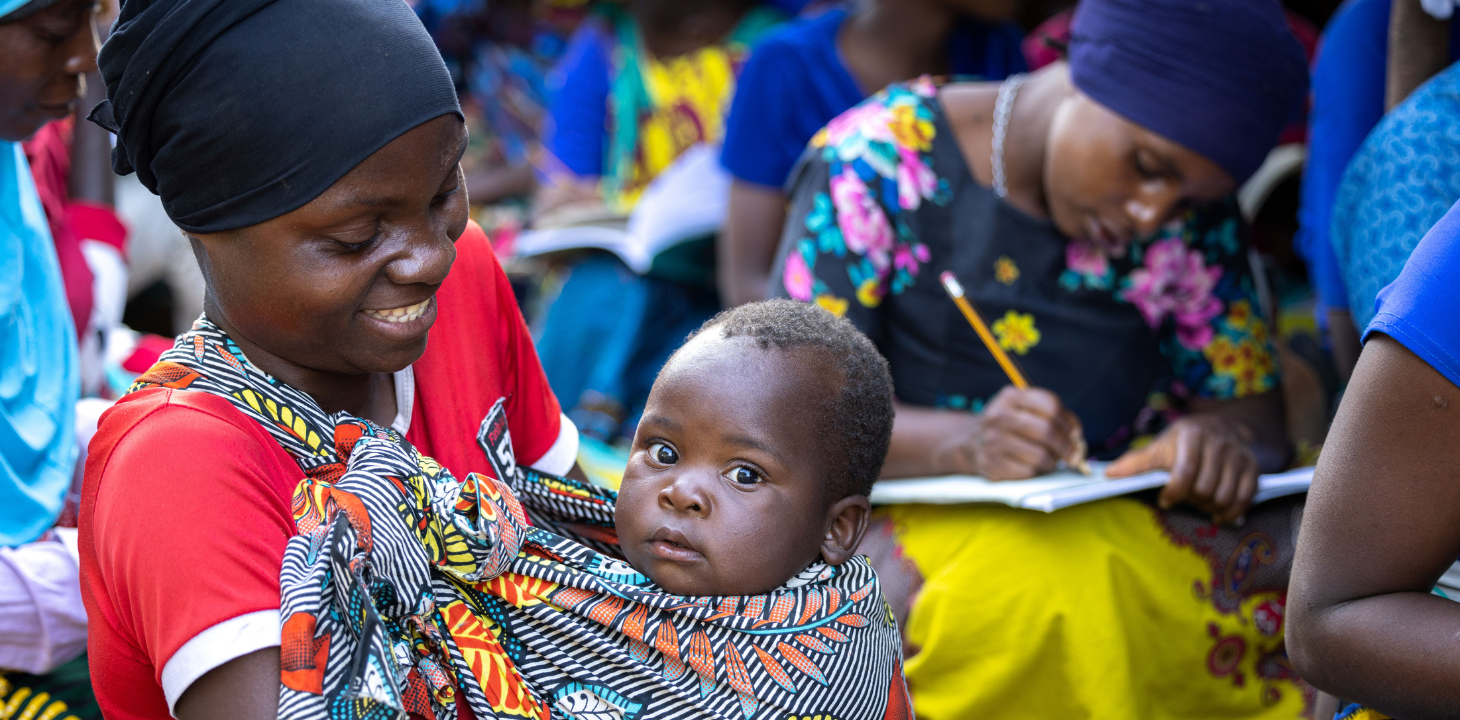
“We Dhimbas are a marginalized people. Our language is not recognized as an official language, and in the past it has not been possible to go to school in your own language. I didn’t dare to go to school before, because I thought I wouldn’t be able to learn anything with a language I don’t understand. Now every week I look forward to going back to school. I want to learn! And I want to help my children go to school! If there is no education, there are no opportunities for a good life either.”
Mweupethatjo Lucia Ndumbu, Literacy class student, Namibia
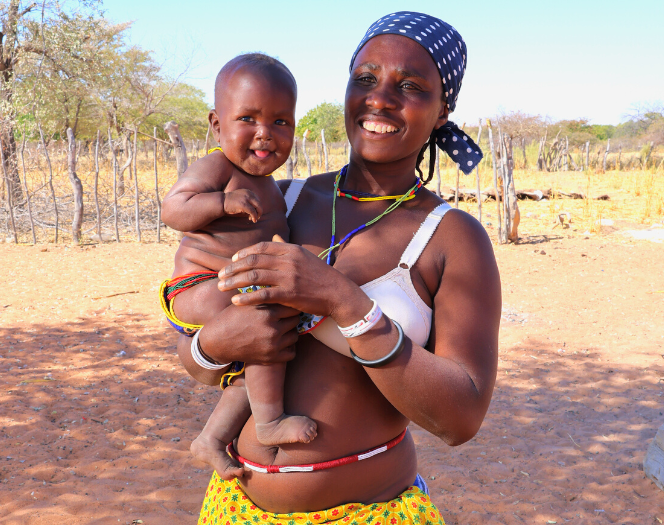
Why women and local languages?
Beneficiaries of the LWA program
Intended beneficiaries of LWA projects are non-literate women without reading skills in their first language. The learning materials are developed in a local language and are suitable for everyone, irrespective of gender, ethnicity, or religion. The primary groups of potential learners consists of non-literate adult or young women, who have not attended school or have dropped out. In some areas also men attend the literacy classes.
The ability to read and write can change a person’s life. At the same time, the world is changing. Literacy helps marginalized people to participate more fully in the community affairs as well as impact their own community and wider society. Educating women improves the lives of their families in many ways. A literate mother is better able to take care of her children and support them to go to school. A recent evaluation of the LWA project in Malawi showed that 75 percent of the women learners claimed to be able to help their children read.
First language-based learning
Research shows that learning to read in a language the learner doesn’t know well, for example the official language of the country, leads to poor learning results and drop-out, particularly among adult learners.
Sustainable literacy skills are best achieved when teaching takes place in a language the person knows well. Yet, many countries continue to provide education, including adult literacy, only in dominant languages.
LWA offers literacy classes in local African languages. The learning materials are related to the learners’ culture and daily life. The unique characteristics of each language are taken into account in materials development.
Learning in the first language helps the local community and learners to commit to literacy project. Using the local language also supports the maintenance of the language and culture.
Map of countries with LWA literacy projects
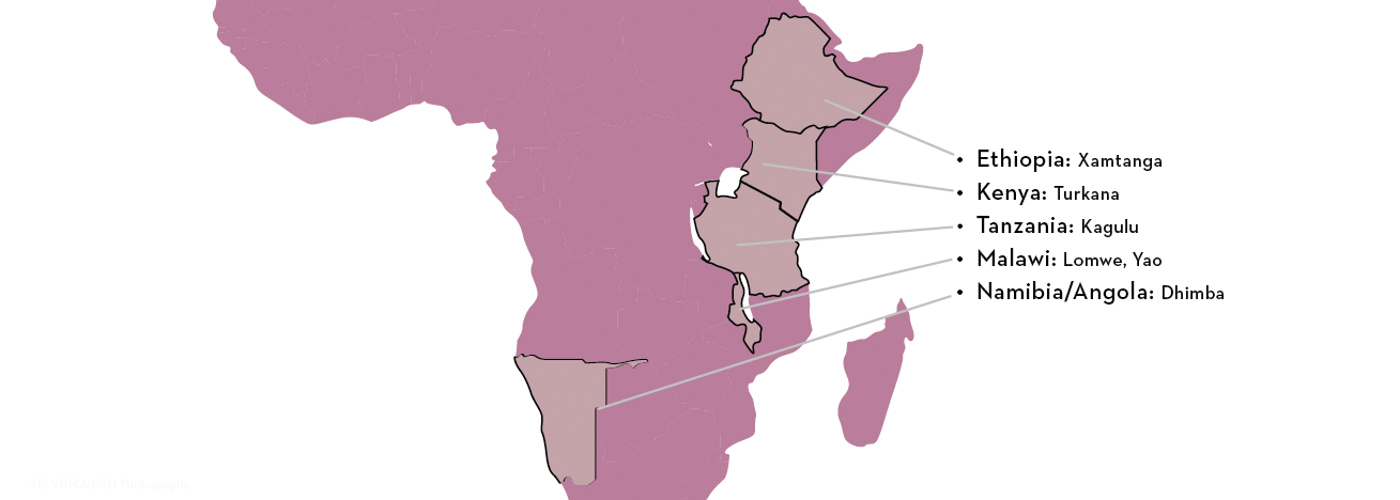
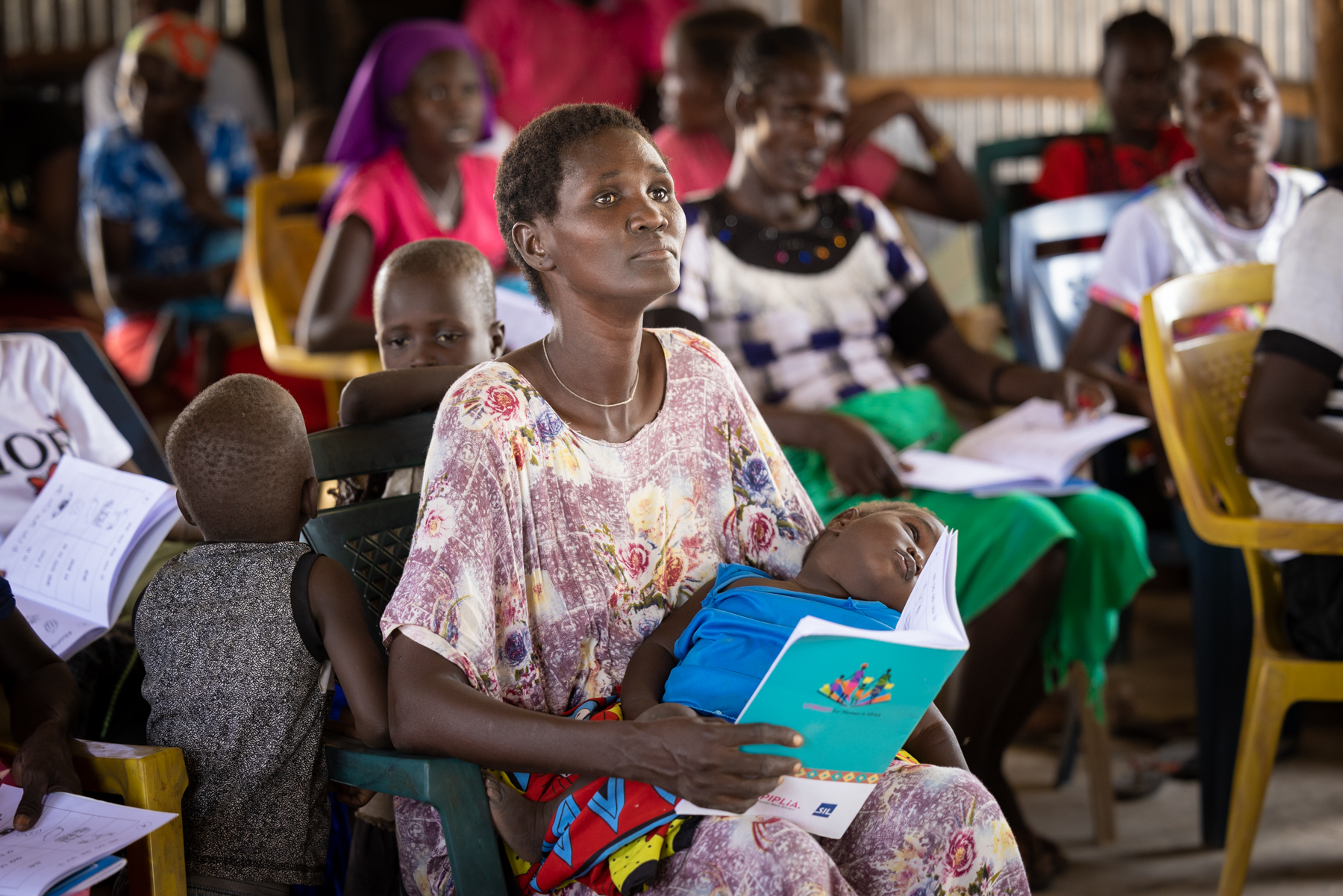
Achievements
The goal of the LWA program is that 20,000 African women learn to read in their first language. By the end of year 2024, 84 percent of this goal was achieved.
Learning results in 2017–2024
20857
learners in 6 different countries
5002
students on a literacy course in 2024
4099, 82%
Completed literacy course, passed reading test (2024)
75%
continued to develop reading fluency in reading groups
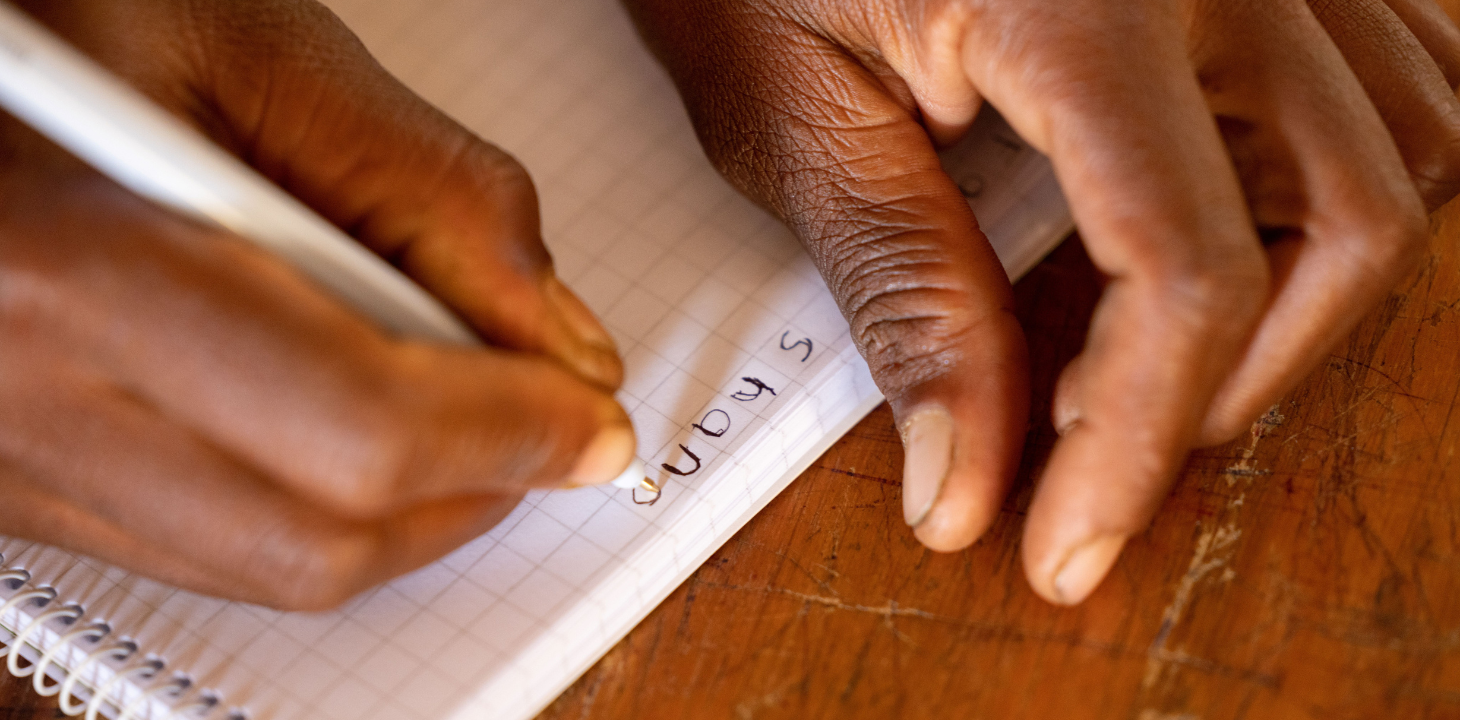
How are the LWA literacy classes organized?
Literacy for Women in Africa is based on the following planning and implementation principles.
-
Before project operations begin, a situational analysis is conducted. Proper planning of the project requires specific information on the local languages and dialects, writing systems, existing literacy materials, beneficiaries, potential partners, and available resources.
Literacy work is coordinated and managed by the local Bible Societies. Local needs and possible challenges are taken into account. The commitment of the local community and local Churches is essential for the functioning of the classes. Local community leaders, who know local practices and needs, play a key role.
-
“Primers”, teachers’ guides, and alphabet posters for adult learners are produced in a month-long workshop with a literacy specialist, local language experts, local artists, and community members.
The primers are based on the phonics methodology, which works well in a situation where learners have time constraints, teachers have little previous teaching experience, and the writing system is transparent, i.e., one symbol represents one sound of the language.
Community members develop additional reading materials at different levels of difficulty. The topics covered by these materials relate to the daily life familiar to the learners. This facilitates the development of reading comprehension and makes learning as natural as possible.
-
Based on the criteria given by the Bible Society, teachers are recruited from local communities in cooperation with the community leaders. The community leaders oversee the work of the teachers and intervene if necessary to ensure the smooth functioning of the literacy classes.
Community leaders and teachers recruit and assign learners to literacy classes. The intended beneficiaries of the LWA literacy projects are women who cannot read and write in any language. Priority is given to non-literate female learners, but non-literate men can also join.
-
New teachers are trained in a ten-day teacher training workshop. Teachers who previously received ten-day training join a five-day refresher training every year.
In the initial phase of the project, teacher training is led by a literacy consultant, assisted by the national literacy coordinator and literacy supervisors. Later, some of the best teachers are selected as teacher trainers. A literacy consultant continues to coach the literacy team so that over time further teacher training can be done independently.
When the literacy course ends, the teachers get together to share their experiences and to prepare for organizing activities aimed at improving the learners’ reading and writing skills.
-
After the primers and the teacher’s guides are completed, ten pilot classes are organized. These pilot classes test the functionality of the materials and the teaching methodology. Information is collected and revisions are made to the materials where necessary.
After the pilot phase and revisions to the materials, the number of literacy classes is increased from 10 to 20 or more. Literacy courses last generally 6–8 months, teaching takes place three days a week, two hours a day. The annual timing of the classes depends on the local agricultural calendar. Many of LWA’s literacy courses run from May to October.
Classes will take place in schools, churches, and under a tree depending on what is available in the community. Chalkboards, primers, teachers’ guides, notebooks, pens, and alphabet posters are provided to each class by the project.
Literacy supervisors visit the literacy classes regularly to monitor the classes and to support the teachers in their work. The national literacy coordinator visits the literacy team and literacy classes few times a year. A professional literacy consultant does monitoring visits to several classes once a year in the beginning of a new project phase.
Baseline and end-line reading tests are conduted to assess the progress of the learners and to ensure that the chosen learning-teaching methodology is working well.
Graduation ceremony is held in the end of the course.
Annual clock Literacy for women in Africa, Malawi
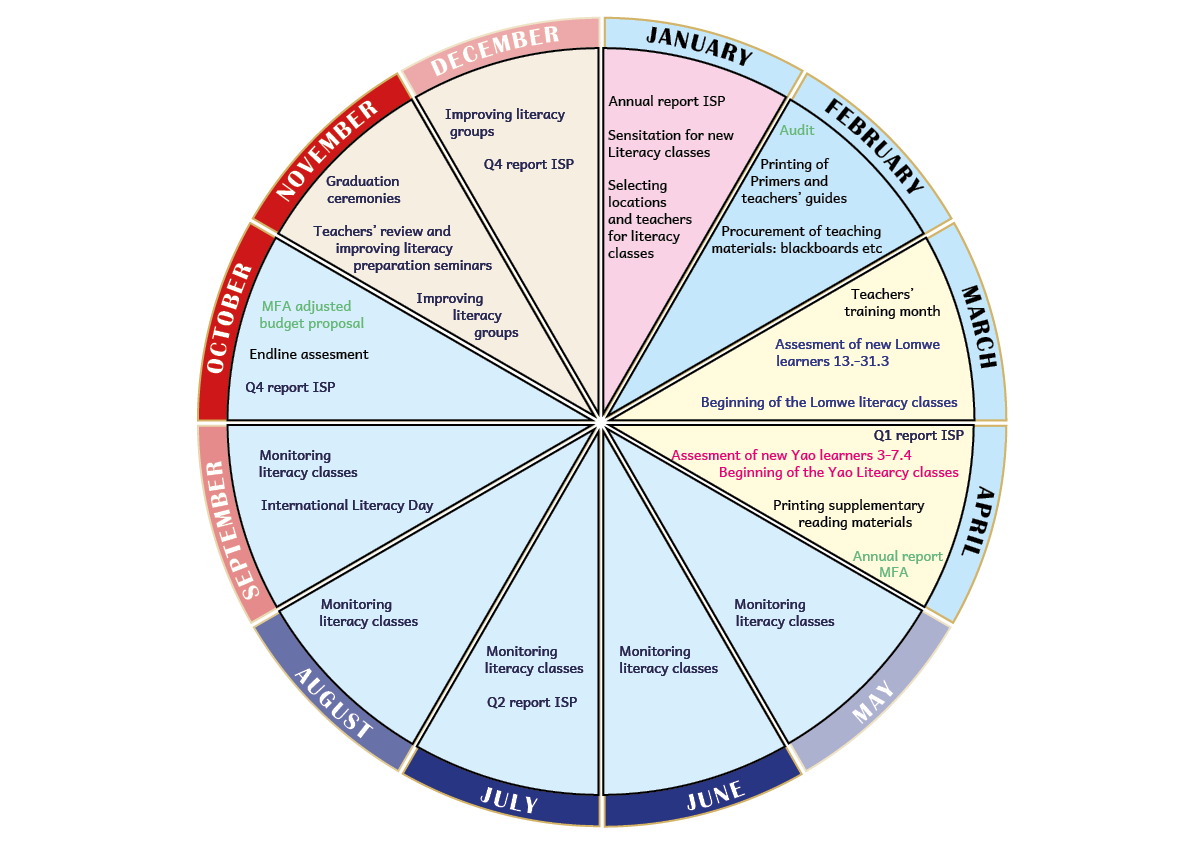
-
Reading and writing are skills that require long-term practice. In about six months, a learner already knows the alphabet of the language used, can read simple sentences and short stories. More practice is needed for more complex texts.
Bible Societies have prepared additional leveled reading materials that could be used to strengthen the reading skills after learning the the basic literacy course is completed. The projects hope to help in the creation of the culture of reading.
Most literacy groups continue to meet regularly after the basic literacy course to improve their reading and writing skills.
Case study: Malawi
Literacy for women in Africa started as a pilot project in Malawi in 2015. After promising results the project has expanded to Angola, Ethiopia, Kenya, Namibia, and Tanzania. Read more about literacy classes and the whole project in Malawi.
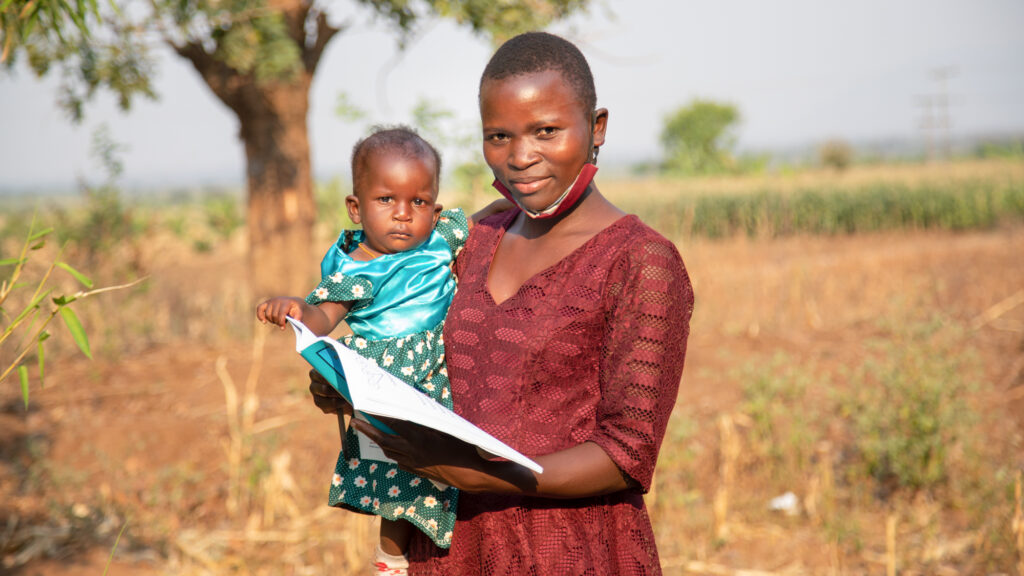
Read more
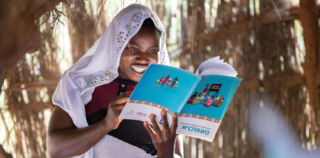
Literacy empowers women in Africa
Anyone who has ever learned to play an instrument or speak a new language as an adult knows that a…
